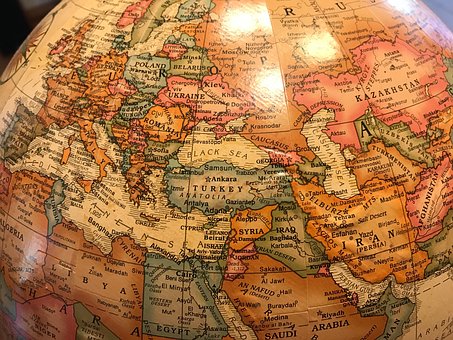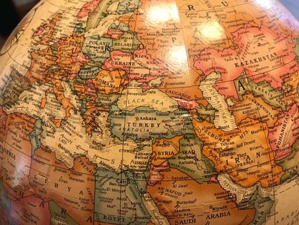According Reuter reports the President of Iran, Hassan Rouhani, may have to hold itself from implementing “some of his core economic policies” while the protests are spreading nationwide given the high level of “unemployment and stagnant living standards” which has left the citizens “frustrated”.
The protests, ignited by the failure of the “economic boom” delivery post the “lifting of sanctions on Iran in January 2016”, has approximately claimed ten lives so far, adds Reuter. At present, the “non-oil part of the economy” is facing a constant struggle given the unemployment levels at 12.5% while the inflation runs at “nearly” 10%. Tamer Badawi from Al-Sharq Forum, a “research fellow”, was quoted by Reuter saying:
“There is a crisis of expectations in Iran. It is a deep sense of economic frustration.”
Therefore, to cater to the “discontent”, the President may have to use the government budget to create job opportunities besides restraining inflation by showing his support on the “rial exchange rate” and come forward with more action on eradicating “the widespread corruption”.
However, if the president were to take all these above mentioned steps, there would be policy changes, while Rouhani has a “conservative budget policy” for containing the “volatile state finances” situation of Iran, which is also an attempt for luring foreign investors. Nevertheless, if the president intends on addressing corruption, he may “risk a backlash from powerful interests hurt by a crackdown”.
London based, Betamatrix consultancy’s “head of energy risk analysis”, an Iranian economist, Mehrdad Emadi, sees Rouhani fighting a “Herculean challenge” in the form of addressing corruption in particular. However, he also notes that the president might not have any other alternatives. In his words:
“People are more and more desperate. In this situation, there will be periodic outbreaks of dissent.”
Post taking up Presidential responsibilities in the year of 2013, Rouhani was quick to reverse the “spendthrift fiscal and monetary policies” set by his “predecessor Mahmoud Ahmadinejad”; thus he curbed a “cash handouts” system that catered to the “lower- and middle-income Iranians”.
Furthermore, Reuter stated that in the previous month, the president presented “another conservative budget” of “$104 billion” before the parliament for the coming fiscal year, which as per Reuters, “was up about 6 percent from the plan for the current year - a cut in real terms at current inflation rates”.
The strictness of his policies are becoming “increasingly unpopular among the public”, and many foreign banking institutes show their reluctance in entering in a business relationship with Iran partly due to the Tehran “hard line” of the U.S. President, Donald Trump, resulting in a “deterred trade and investment”.
A study indicated the dissatisfaction of the Iranians with the economic scenario could broadly be grouped under “five main reasons: unemployment, weak purchasing power, corruption, a weak rial, and unequal distribution of wealth among Iran’s regions”. In Emadi’s words:
“My guess is that nothing significant will change. The government will try to be open with people, to propose initiatives, but there are structural problems - diversification, the banking problem and relations with the rest of world, especially Trump.”
References:
reuters.com
The protests, ignited by the failure of the “economic boom” delivery post the “lifting of sanctions on Iran in January 2016”, has approximately claimed ten lives so far, adds Reuter. At present, the “non-oil part of the economy” is facing a constant struggle given the unemployment levels at 12.5% while the inflation runs at “nearly” 10%. Tamer Badawi from Al-Sharq Forum, a “research fellow”, was quoted by Reuter saying:
“There is a crisis of expectations in Iran. It is a deep sense of economic frustration.”
Therefore, to cater to the “discontent”, the President may have to use the government budget to create job opportunities besides restraining inflation by showing his support on the “rial exchange rate” and come forward with more action on eradicating “the widespread corruption”.
However, if the president were to take all these above mentioned steps, there would be policy changes, while Rouhani has a “conservative budget policy” for containing the “volatile state finances” situation of Iran, which is also an attempt for luring foreign investors. Nevertheless, if the president intends on addressing corruption, he may “risk a backlash from powerful interests hurt by a crackdown”.
London based, Betamatrix consultancy’s “head of energy risk analysis”, an Iranian economist, Mehrdad Emadi, sees Rouhani fighting a “Herculean challenge” in the form of addressing corruption in particular. However, he also notes that the president might not have any other alternatives. In his words:
“People are more and more desperate. In this situation, there will be periodic outbreaks of dissent.”
Post taking up Presidential responsibilities in the year of 2013, Rouhani was quick to reverse the “spendthrift fiscal and monetary policies” set by his “predecessor Mahmoud Ahmadinejad”; thus he curbed a “cash handouts” system that catered to the “lower- and middle-income Iranians”.
Furthermore, Reuter stated that in the previous month, the president presented “another conservative budget” of “$104 billion” before the parliament for the coming fiscal year, which as per Reuters, “was up about 6 percent from the plan for the current year - a cut in real terms at current inflation rates”.
The strictness of his policies are becoming “increasingly unpopular among the public”, and many foreign banking institutes show their reluctance in entering in a business relationship with Iran partly due to the Tehran “hard line” of the U.S. President, Donald Trump, resulting in a “deterred trade and investment”.
A study indicated the dissatisfaction of the Iranians with the economic scenario could broadly be grouped under “five main reasons: unemployment, weak purchasing power, corruption, a weak rial, and unequal distribution of wealth among Iran’s regions”. In Emadi’s words:
“My guess is that nothing significant will change. The government will try to be open with people, to propose initiatives, but there are structural problems - diversification, the banking problem and relations with the rest of world, especially Trump.”
References:
reuters.com






